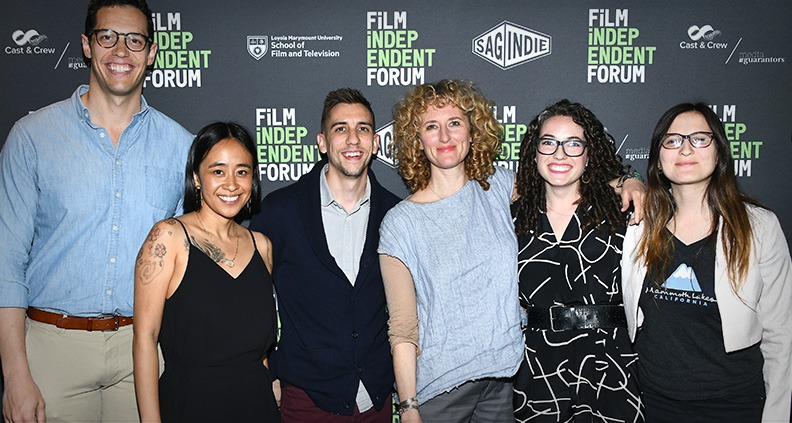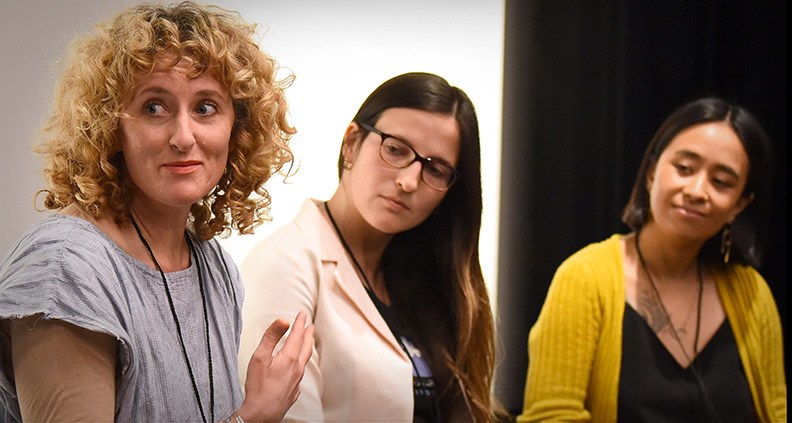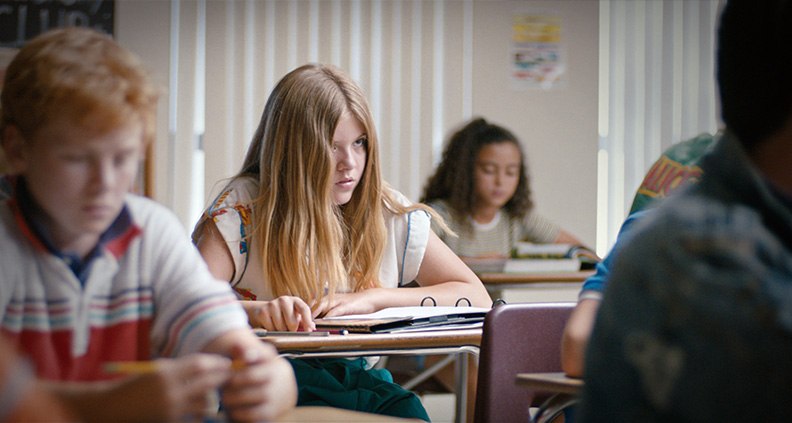From the Archives: Using Short Films as More than Just a Calling Card
EDITOR’S NOTE: The following article originally ran in May of this year as part of our coverage of the 2019 Film Independent Forum. It is being republished here with minor edits. Special thanks to blogger Anthony Ferranti.
***
It was April 28—the final day of the 2019 Film Independent Forum—and judging by the standing room only turnout for the Sunday panel “In Short: Getting Past the Calling Card,” there are a lot of filmmakers out there making a lot of short films.
There’s no doubt: shorts are an important tool for filmmakers attempting to build a successful career—a display of one’s unique skills as a storyteller that demonstrate to gatekeepers where your interests lay as an artist. And thanks to the ever-expanding social media landscape shorts can create a significant buzz for a talent, going viral and prompting eager phone calls from interested parties.
But moving a career forward off the success of a short film requires more than just the sudden pop a single piece of work. Sunday’s eclectic panel offered a wide range of hard-won insights and opinions derived from a variety of professional perspectives.

Moderator Missy Laney, Director of Development at Adult Swim, kicked things off by offering a definition of the term “calling card”—“a special skill or talent that sets an individual apart from others.” Spoiler Alert: the idea of individuality would be a running theme throughout the conversation. Seems like a no-brainer, right? But so often, the cues signaled by the film industry encourage you not to be yourself, but rather to show how you can do things like “the pros.” After all, there’s a reason we all pitch our projects by creating a hyphenate of two known film titles (“it’s Titanic meets Tootsie.”)
LA Film Festival Special Jury Prize winner Amber Sealey said that she struggled with the idea of an individual piece of work serving as a calling card. “I don’t think a calling card exists in a vacuum. It has to be built upon the whole rest of your experience and your relationships.” For Sealey, the power lies in her personal network. “Cultivate friendships, however you do best. If that’s by attending film festivals, or if you’re an online gamer, great!” Whatever works to build your circle or awareness.
Actor and writer Charlene deGuzman looks at networking in a slightly different way. After she earned notoriety—and the attention of Mark Duplass—when her short film I Forgot My Phone went viral on YouTube (with 51+ million views), she saw value in building a robust online community of followers. But it didn’t come easy; it takes a lot of hard work to cultivate an authentic online personality and engage with your network of followers. And essentially, through these efforts, deGuzman is her own calling card.

Keeping with the topic of networking, film festival programmer Ana Souza encouraged filmmakers to be outgoing. “Reaching out to festivals can be a lot more transparent than it might appear at first.” She offered the caveat: “It depends from festival to festival, [but] we want to hear about new projects. When you start to submit to festivals, reaching out and even asking for a [application fee] waiver, it’s surprising who’s willing to grant you one and let go of that fee.” Souza also recommended seeking out local festivals and “meeting filmmakers and programmers—see what other shorts are out there. Los Angeles has a huge number of festivals going on every month.”
When it comes to the search for next wave of talented filmmakers, Richard Ruiz, Director of Production at Fox Searchlight, looks to the festivals—particularly the big ones: Sundance, Toronto and SXSW. “We’ve even started an initiative to acquire some short films and to put them up on our social media channels. It’s about supporting that next generation of talent [and] creating engagement and creating an audience.”
LA-based literary manager Antonio D’Intino talked about the power of the referrals. “I look to sign people who are on the early end of their careers,” he said, stating that it’s hard for him to take someone on if they don’t have a short film or a couple of completed writing samples. He continued: “In terms of where I find people to sign, a lot come from my other clients; the friends they made in film school. I probably rep five people from the same class from Columbia University. And festivals—the good thing about festivals is the curation that happens.”

“What’s next?” or, more specifically, “What do you want to do next?” are questions that several of the panelists echoed as inevitable queries that a filmmaker will hear from potential programmers, reps and other gatekeepers. Their advice? Do yourself a favor and make sure you know what you want to do next. For Laney, this question is a way for her to categorize a filmmaker and see how they might be a fit for future needs. “If we’re looking for an opera musical and that’s what you said you want to do next, then I’m totally going to turn to you, because you’re the pirate-opera-musical person.”
Laney then posed this question to all the panelists: “What’s the most valuable currency for a short film to gain attention?” For Ruiz, you need to start by creating a quality story and staying under 15 minutes. Sealey believes the stamp of approval from one of the big festivals is crucial: SXSW, Sundance, Toronto or AFI. Souza considers it a key strategy to find the right platform and audience for your short: “You might do better with an international audience. Do your research.”
Said deGuzman: “The one thing that you and you alone have to bring is your authentic self with your authentic experiences. If you stay true to that, there’s an audience for it.”
The 2019 Film Independent Forum took place April 26-28, 2019 at the new LMU Playa Vista campus in the heart of Silicon Beach—click here to see what else happened, and don’t forget to come back next year!
The 2019 Film Independent Forum was supported by Premier Sponsors SAGindie, Cast & Crew and University Partner Loyola Marymount University School of Film and Television.